How To Customize the Way Trello Lists Sync With Other Integrations
Unito syncs trello lists to fields in other tools however you need them organized. This guide will walk you through the possibilities and show you how it’s done.
Applying Trello lists to rules and default settings
Section titled “Applying Trello lists to rules and default settings”One way to use Trello lists in your flows is as a condition of your Unito rules. In the below example, only Trello cards within the specific list chosen will sync to Azure DevOps.
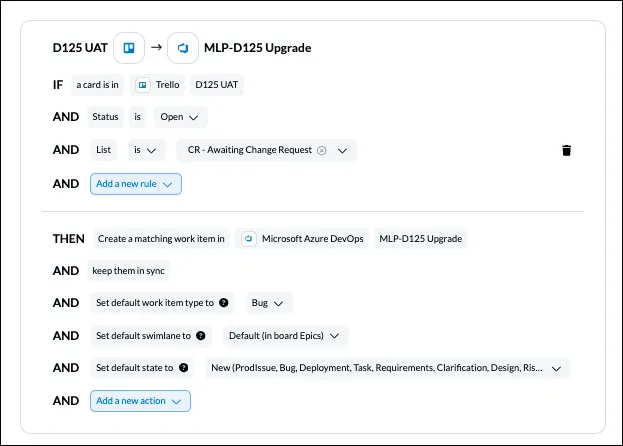
Simply select Add a new rule, then click List and decide if the rule will be an is or is not condition and pick as many lists as you need.
Understanding default Trello list syncing
Section titled “Understanding default Trello list syncing”When building a flow, you can map Trello lists so cards are automatically synced to specific lists. Setting a default list in your rules allows any cards that fall outside of those mappings to land in a defined list.\
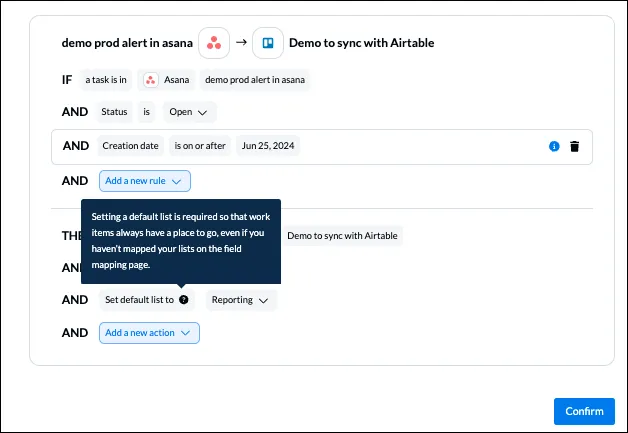
Setting lists in your field mappings table
Section titled “Setting lists in your field mappings table”You can sync each Trello list to a different status in your other tool(s) like Jira or Asana to track progress and stages.
If an item (a task or issue in those examples) is given a specific status which is mapped in Unito to a specific list, Unito will create a new Trello card in that list, instead of the default list.
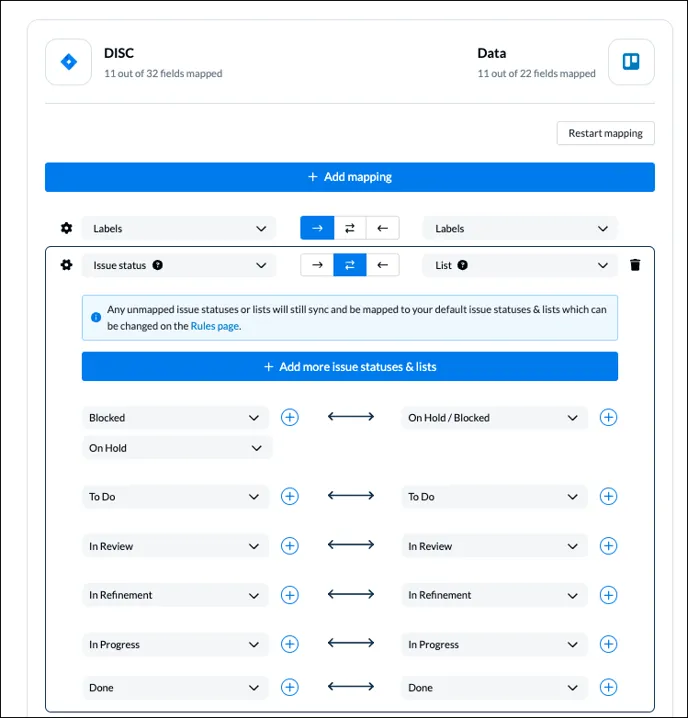
More than just status
Section titled “More than just status”In terms of use cases, you by no means need to restrict yourself to only syncing Trello lists to status fields. If your team organizes work by department, project, phase, sprint, or any other container of information, you can sync your lists to it.
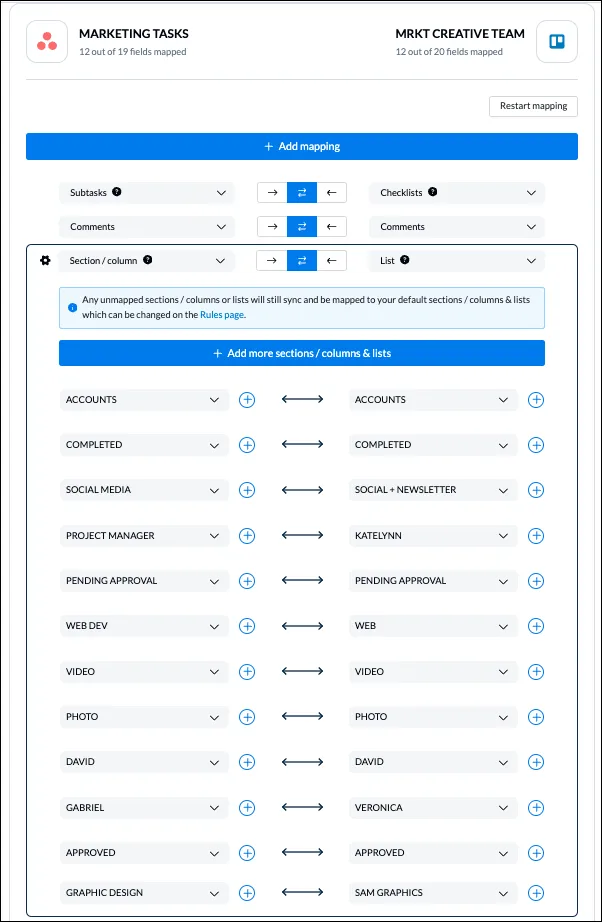
Linking lists to custom fields
Section titled “Linking lists to custom fields”If your tool supports custom fields, you can create fields that mirror your Trello lists (e.g., “To Do,” “In Progress,” “Done”) and map them accordingly. This is particularly useful for tools with limited status options. Ideally, the custom field will relate in some way to the categorization of your Trello cards.
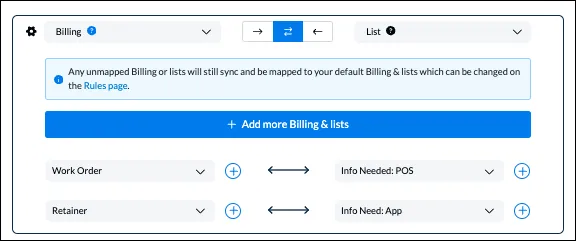
Syncing lists to other fields
Section titled “Syncing lists to other fields”You can even map Trello lists to other field types, like text fields or dropdown menus. This might be useful for tracking custom categories or priorities.